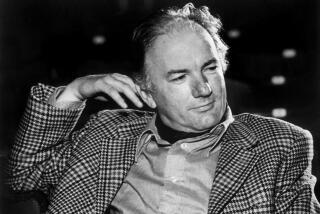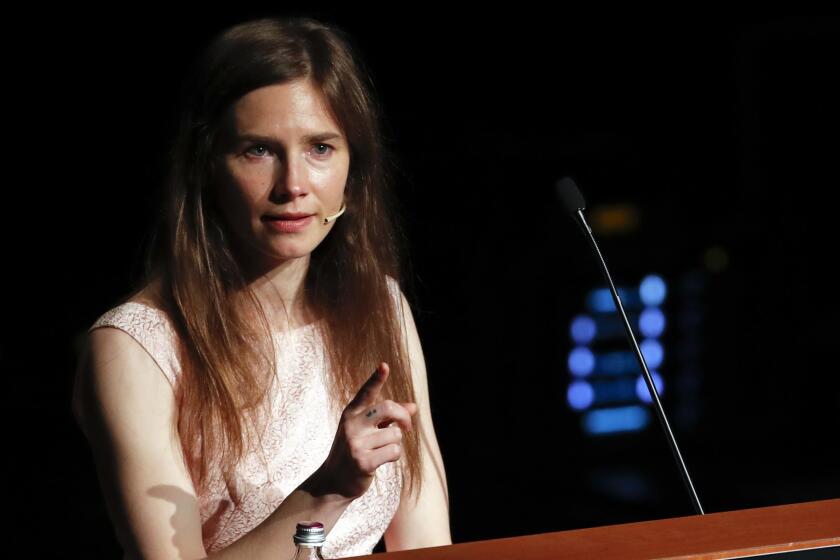Thomas Bernhard; Austrian Playwright
- Share via
VIENNA — Controversial writer and dramatist Thomas Bernhard, whose works dwelt in the dark reaches of alienation and terrorism and whose last play in Vienna sparked public demonstrations and cultural divisiveness, has died.
The enfant terrible of Austrian theater and literature who had been likened an heir to Franz Kafka was 58.
Police said Thursday that Bernhard was found dead of apparent heart failure in his house in the town of Gmunden on Sunday morning.
A spokesman declined to say why it had taken four days to announce the death, but the Austria Press Agency later reported that it was Bernhard’s wish to be buried before his death was announced.
Bernhard, whose play “Heldenplatz” (“Heroes’ Square”) accused Austrians of being anti-Semites and fascists and enraged many politicians, had suffered for many years from a lung condition that Austrian radio said required regular treatment with cortisone.
Born in the Netherlands, Bernhard was the illegitimate child of a Salzburg woman and a peasant father whom he never knew.
Los Angeles Times book critic Richard Eder in reviewing Bernhard’s “A Memoir” in 1986 said that because of the circumstances of his birth, the author had since burned “with a succession of prosecutorial fires: infantile, adolescent and adult. . . .”
He grew up in Vienna, the Austrian countryside and southern Bavaria before being sent in his early teens to a home in Salzburg.
Grocer’s Apprentice
Leaving school early to become a grocer’s apprentice, Bernhard was hospitalized for months at a time with severe lung complaints from 1948 to 1951. In 1955, he entered Salzburg’s famed Mozarteum to study acting and music and in 1957 published his first volume of poetry.
Publication of several novels, short stories and more poetry followed, winning an increasing series of awards for the man whom prominent West German critic Marcel Reich-Ranicki termed “the most melancholy poet and most bitter prophet of German literature.”
His plays, often directed by the controversial director of Vienna’s Burgtheater, Claus Peymann, were a continual subject of controversy in Vienna and Salzburg.
In 1976, for instance, his play “The Famous” opened in Vienna after being rejected by the Salzburg festival because of its criticism of prominent Salzburg cultural figures.
Peymann’s production of “Heldenplatz” at the Burgtheater last fall also sparked a raging controversy over whether state money should be used to subsidize art so critical of Austria.
Many Vienna critics, however, praised the play and its performance.
“Heldenplatz” tells the story of a Jewish professor who emigrates in 1938 when the Nazis march in, returns later and eventually commits suicide because he feels Austria in 1988 has barely changed its attitude toward Jews.
In 1984 police seized his book “Woodcutting” because of allegations that it insulted a well-known Viennese cultural figure.
In general, Eder wrote, Bernhard’s sense of life was “implacably hostile.”
More to Read
The biggest entertainment stories
Get our big stories about Hollywood, film, television, music, arts, culture and more right in your inbox as soon as they publish.
You may occasionally receive promotional content from the Los Angeles Times.










